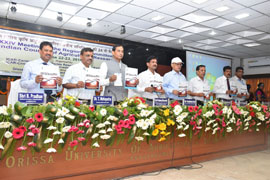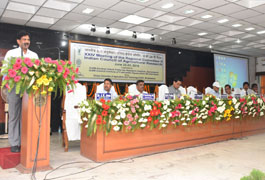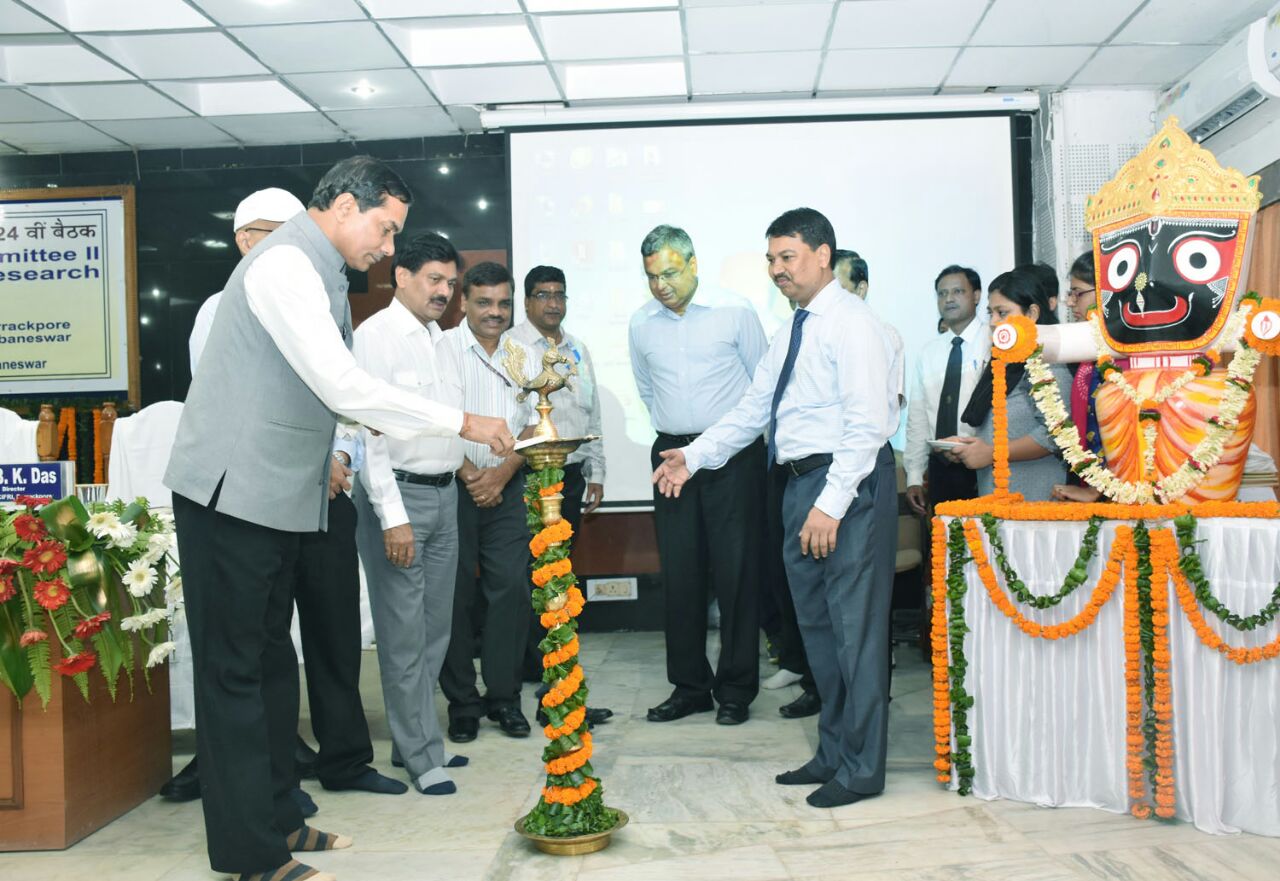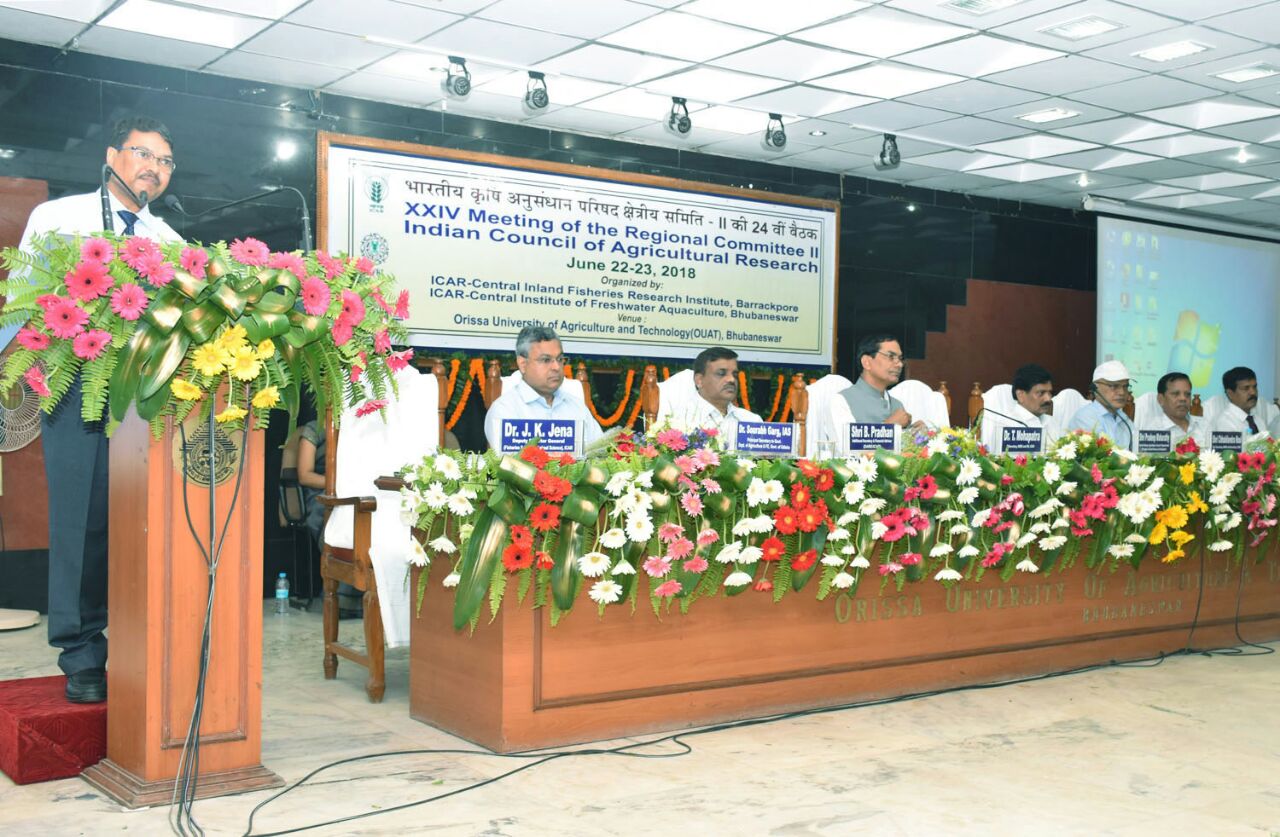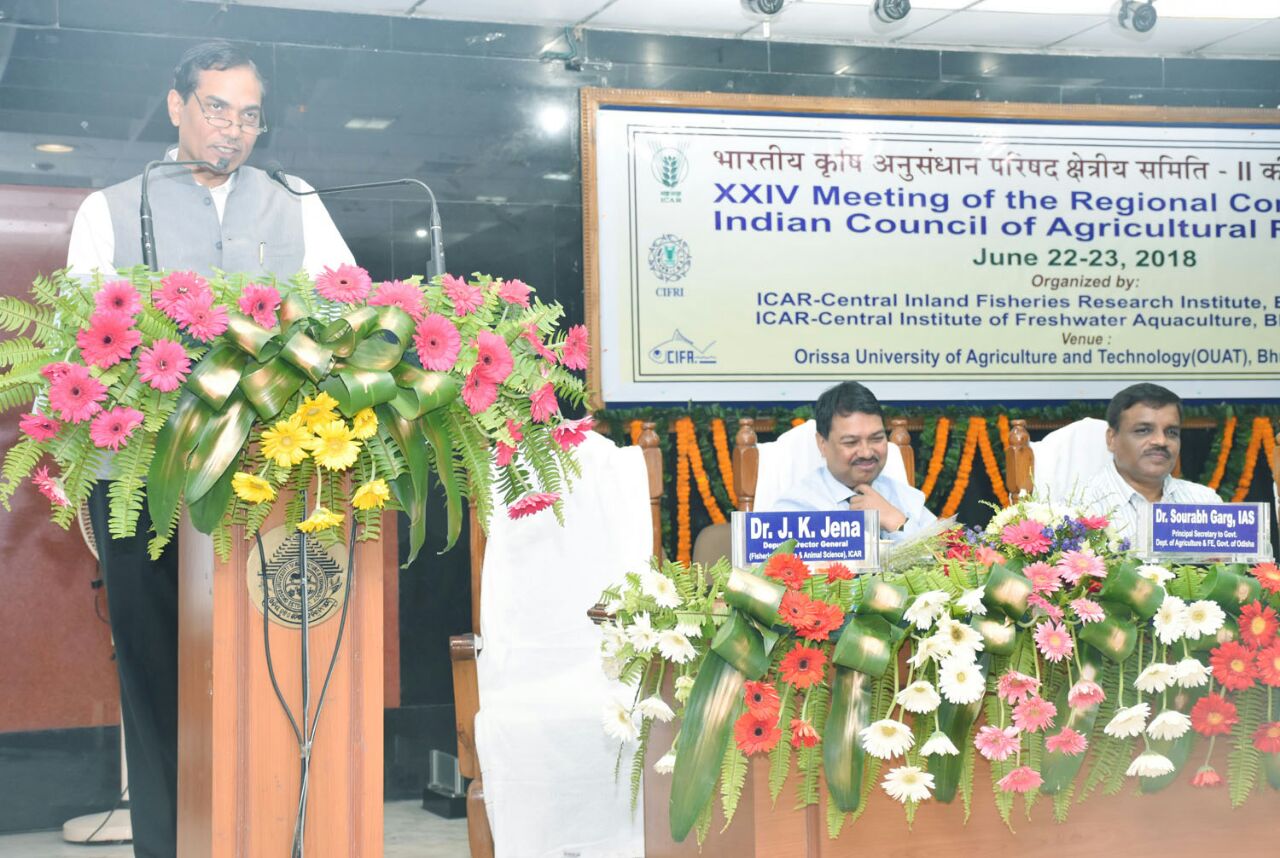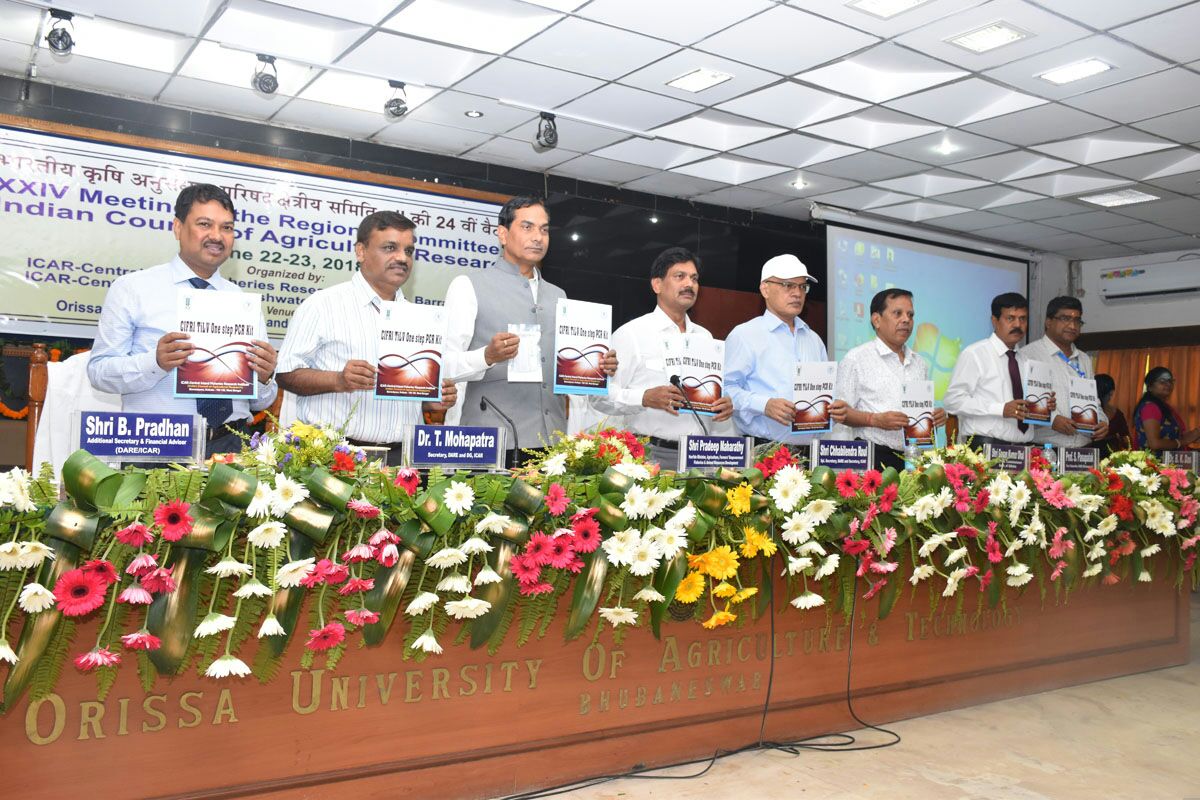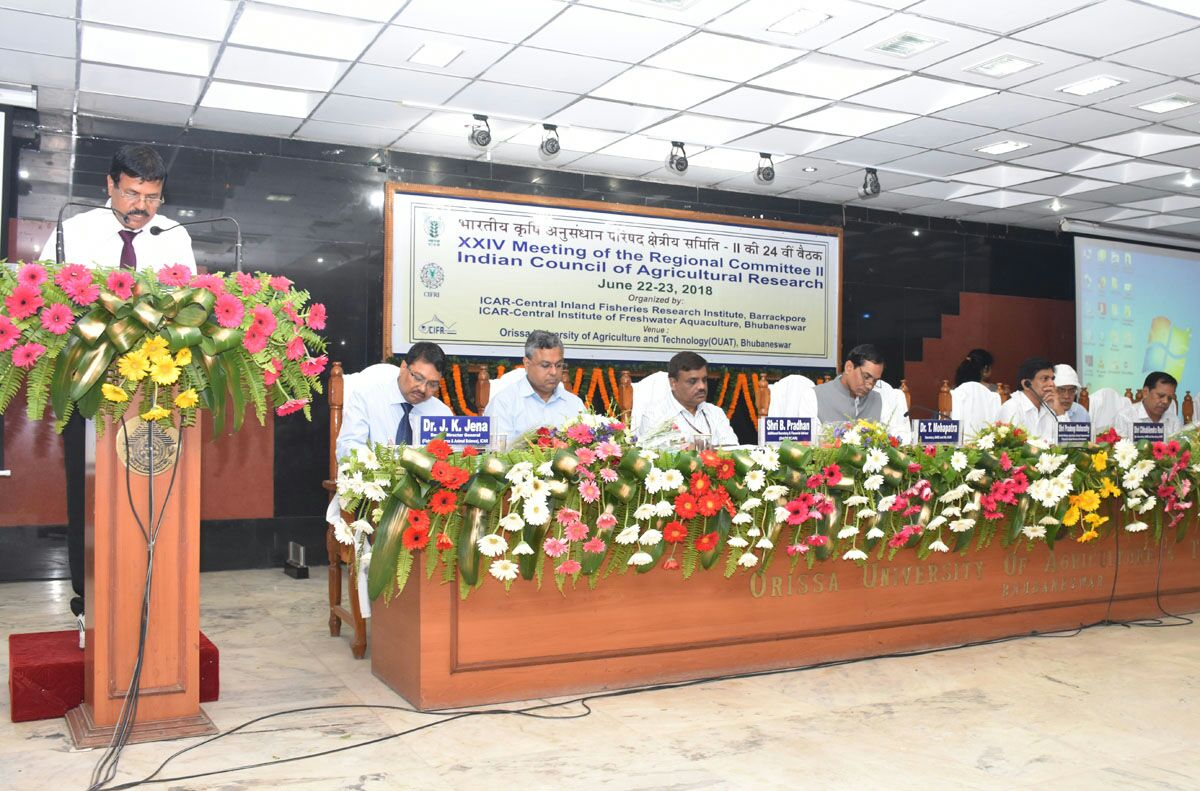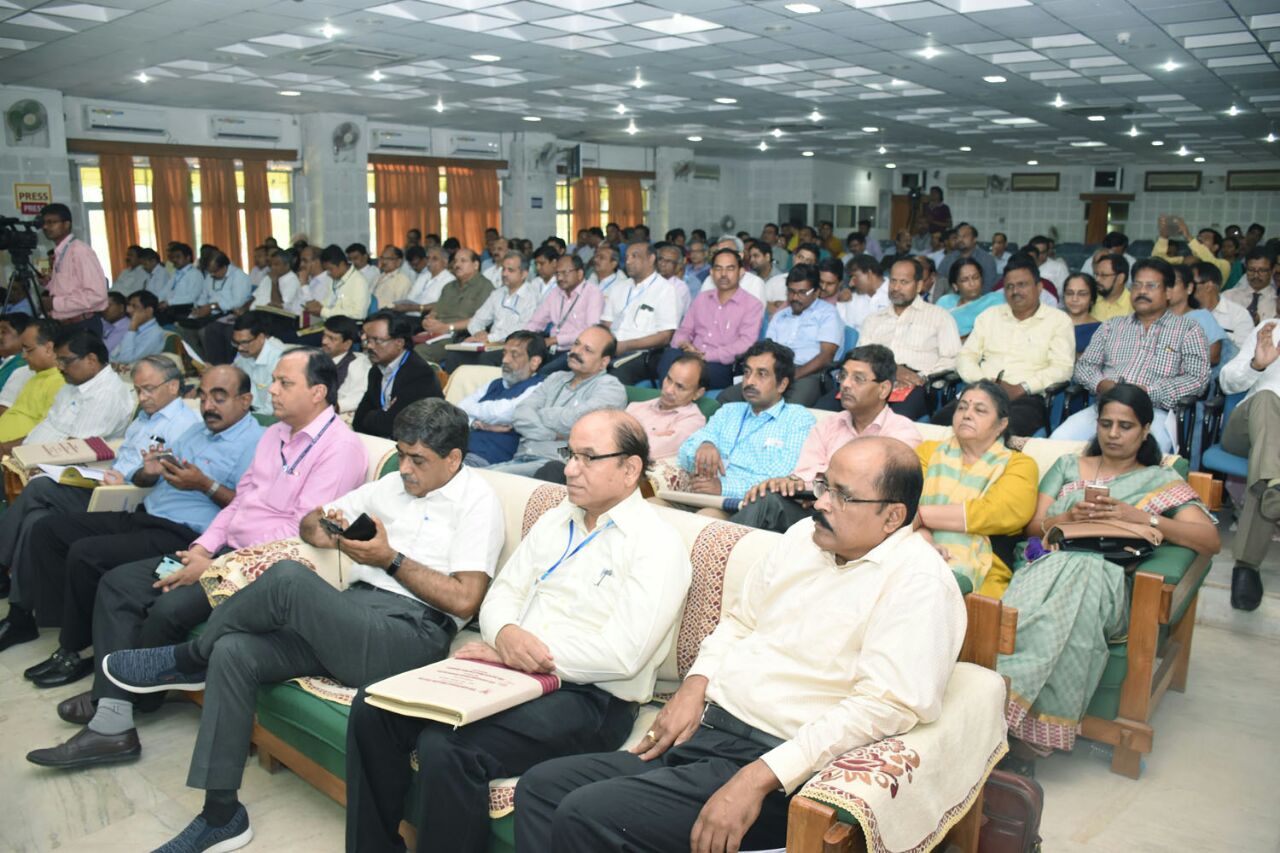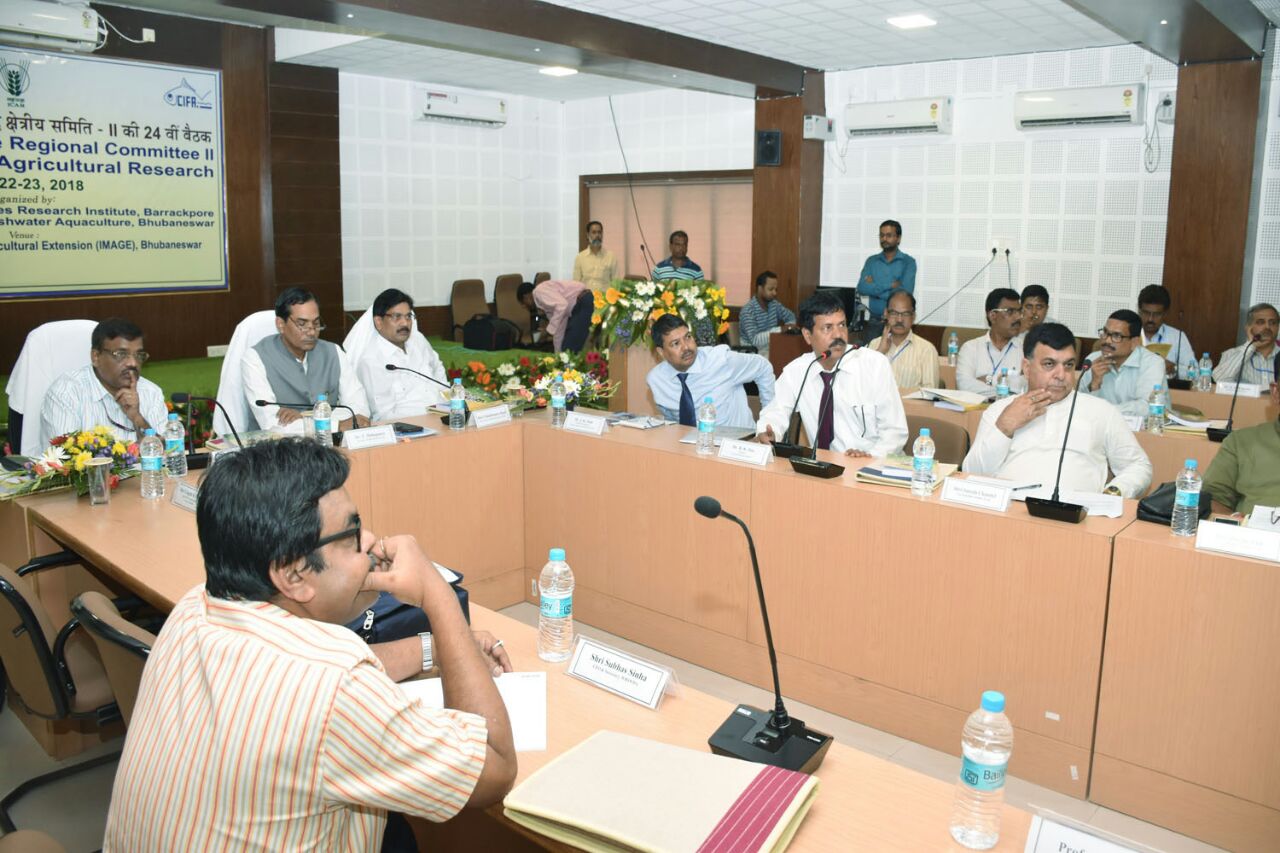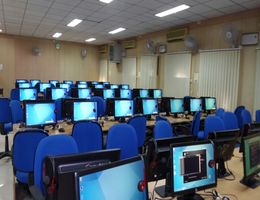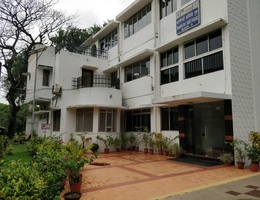Overview
Publications
Recruitment
Intranet
Glimpse of CIFRI
24th ICAR Regional Committee - II Meeting
The 24th meeting of Indian Council of Agricultural Research (ICAR)-Regional Committee II comprising members from the states of West Bengal, Odisha, Andhra Pradesh, Telangana and UT of Andaman and Nicobar Islands, commenced today at OUAT, Bhubaneswar. The technical sessions are being held at Institute on Management of Agricultural Extension (IMAGE), Bhubaneswar, on 22- 23 June 2018. The event is being organized by ICAR-CIFRI, Barrackpore in collaboration with ICAR-CIFA, Bhubaneswar. The Regional Committee provides a forum for the stakeholders to examine in depth the major gaps in current research and training efforts, to identify priorities and to decide agenda of research and extension in agriculture, animal husbandry and fisheries for a region for the coming year.Dr T. Mohapatra, Secretary, DARE and Director General, ICAR, New Delhi, in his presidential address emphasized that the region offers tremendous scope and opportunities for multifaceted growth of agriculture sector, including animal husbandry, fisheries, horticulture, sericulture and others. The region is contributing significantly to the food basket of India. The states of this region are the major producers of rice, potato, tobacco, jute, poultry, fishes, oil-palm, vegetables and flowers. The country produces more than 280 million metric tonnes foodgrains despite the problems of climate change, loss of arable areas due to urbanization and a host of other problems. A right mix of technological breakthroughs and policy support has realized it. He called for concerted efforts of ICAR, SAUs and state governments to ensure that doubling of farmers income becomes a reality.
Dr J.K. Jena, DDG (Fisheries Science & Animal Science) presented the background of RCM II and highlighted the major accomplishments of agricultural research and development in this region. Shri Chhabilendra Roul, Special Secretary (DARE) & Secretary (ICAR) emphasized the need for a paradigm shift in production system. The structural disconnect between consumer system and production system has to be bridged. Farmers need to be encouraged to produce for market in order to enhance their income and to lift out of distress.
Shri Bimbardhar Pradhan, Additional Secretary & Financial Advisor (DARE/ICAR) stressed on connecting farmers with e-NAM. He also advocated for state specific interventions for tackling problems of climate change.
Dr S. Garg, Principal Secretary, Agriculture and Farmers Empowerment, Government of Odisha, also graced the occasion. He appreciated the close interaction with different stakeholders on agricultural research and development being organized by ICAR. He wished this unique initiative would go a long way in ensuring that research findings are grounded well for the benefit of farming community.
Sri G. B. Dhal, Agriculture Production Commissioner, Odisha, highlighted the use of robotics, genomics and nanotechnology in agriculture. He remarked that countries like Israel and USA are using 4G farming technologies whereas we in India are at 2G level. He urged the research fraternity to make available new generation farming technologies for the betterment of socio-economic condition of farmers.
Senior officers from ICAR hqrs. New Delhi; Directors of ICAR research institutes, Vice Chancellors of the State Agricultural Universities, Senior Officials (Principal Secretaries/Secretaries/Directors) of the State Departments of Agriculture, Animal Husbandry, Dairy and Fisheries participated in the discussion to prepare a roadmap for the development of agriculture including animal husbandry, dairying, fisheries, natural resource management and human resource development.

